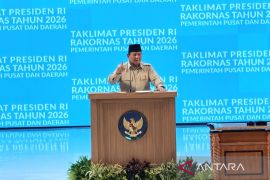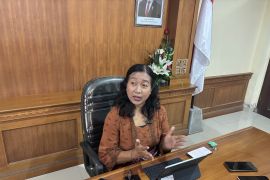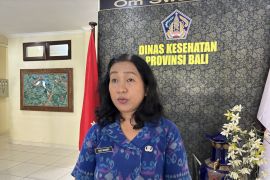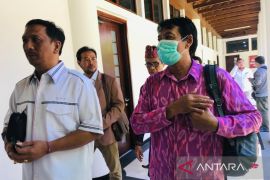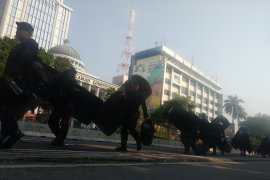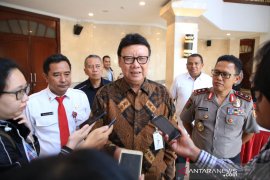Jakarta (Antara Bali) - Several academicians voiced their rejection to the implementation of the regional elections law, which regulates an indirect system of elections by legislative assemblies (DPRD), saying that it is against the principles of transparency and accountability.
"The election by the DPRD is a setback and runs against the national process of learning democracy," Karlina Supelli from the Driyarkara Institute of Philosophy stated while representing her colleagues in a statement read at the Post-Graduate Building of the State University of Indonesia here on Thursday.
She remarked that the recent ratification of the law on the People's Consultative Assembly (MPR), the House of Representatives (DPR), the Regional Representatives Council (DPD), and the DPRD, known as the Law on MD3, and the law on regional elections (the Pilkada law) will create a concrete legacy of polarized interests, which veers from the common objective of ensuring the people's welfare and fails to edify the younger generation.
"The process of improvement in state governance and the aspirations to learn democracy in a civil manner have been put in jeopardy," she affirmed.
Karlina pointed out that several Indonesian academicians have rejected all forms of manipulation that had taken place through the misuse of formal-procedural legal formulation methods.
She pointed out that the coalition of political parties and groups have misused the methods for their personal gains under the veil of public interest.
"The manipulation will plunge the nation into a bigger risk, and it is also against the mandate of the constitution and "Pancasila" state ideology," she remarked.
She affirmed that Indonesian academicians denounced the behavior and attitude of its Parliament members and also the ongoing process in the DPR that has violated the state order, which is based on a presidential system of governance with all the manipulations to shift the nucleus of power entirely in the hands of the parliament.
As a result, she stated that the management of the state would not just be in the hands of a political oligarchy but would also hand over the control of natural resources to them.
"We reject the attitude and behavior of politicians and parliamentary members who did not express gratitude to the people that have given their mandate to them," she stressed.
In view of that, the academicians urged the parliament to restore the formulation of legislation products and the political rights of the people.
She stated that the "parliamentary coup" deploying tactics to control the leadership of the MPR and DPR must be rectified.
The Red-White coalition of political parties that supported Prabowo Subianto in the presidential election on July 9 swept the leadership of the House of Representatives, leaving no room for the Great Indonesia coalition of parties that support Joko Widodo, who won the presidential election on July 9.
The victory, however, was marked by a walkout by the parties from the Great Indonesia coalition.
The Red-White coalition also swept the leadership of the People's Consultative Assembly (MPR) recently.
The DPR recently passed the bill on regional elections that allows an indirect system of elections by the DPRD. The passage was fully supported by the Red-White coalition and happened after the ruling Democrat Party led by President Susilo Bambang Yudhoyono staged a walkout during the vote.
As a result, President Yudhoyono and the Democrat Party received harsh criticism from various quarters, which later prompted the president to issue a regulation in lieu of the law or Perppu.
The Perppu, however, can only be implemented if it is accepted by the DPR, whose leadership is now controlled by the Red-White coalition. (WDY)
Academicians Denounce Indirect System Of Regional Elections
Pewarta : Reporting by Imam Budilaksono 9 Oktober 2014 16:15 WIB




